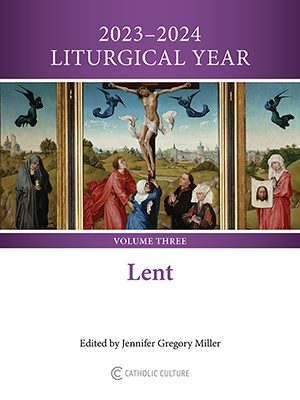Fathers of the Church
Epistle XXXII: to Marinianus, Bishop of Ravenna
by Gregory the Great in 590-604 | translated by James Barmby, D.d
Gregory to Marinianus, &c.
When the bearer of these presents, Candidus the abbot, came hither to ask for relics (which have also been granted), as much as I rejoiced in thy Fraternity's nursing aid, thy Fraternity's care for me being therein apparent, so much was I distressed that I could not enjoy his presence as I wished to do, seeing that he found me sick, and, when he departed, left me still in a state of weakness. For it is now a long time since I have been able to rise from bed. For at one time the pain of gout torments me, at another a fire, I know not of what kind, spreads itself with pain through my whole body; and it is generally the case that at one and the same time burning pain racks me, and body and mind fail me. Further, what other great distresses of sickness beside what I have mentioned I am affected by, I am unable to recount. This however I may briefly say, that the infection of a noxious humour so drinks me up that it is pain to me to live, and I anxiously look for death, which alone I can hope for to relieve my groans. Accordingly, most holy brother, implore for me the compassion of divine loving-kindness, that it would mercifully mitigate towards me the scourges of its smiting, and grant me patience to endure, lest (which God forbid) my heart break out into impatience from excessive weariness, and the guilt which might have been well cured through stripes be increased by murmuring. Given in the month of February, Indiction 4.
Taken from "The Early Church Fathers and Other Works" originally published by Wm. B. Eerdmans Pub. Co. in English in Edinburgh, Scotland, beginning in 1867. (LNPF II/XIII, Schaff and Wace). The digital version is by The Electronic Bible Society, P.O. Box 701356, Dallas, TX 75370, 214-407-WORD.







